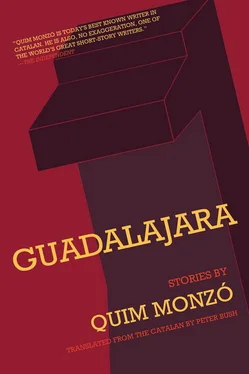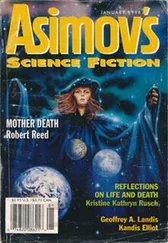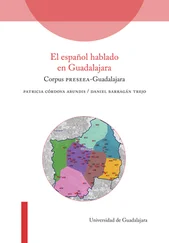Quim Monzó - Guadalajara
Здесь есть возможность читать онлайн «Quim Monzó - Guadalajara» весь текст электронной книги совершенно бесплатно (целиком полную версию без сокращений). В некоторых случаях можно слушать аудио, скачать через торрент в формате fb2 и присутствует краткое содержание. Год выпуска: 2011, Издательство: Open Letter, Жанр: Современная проза, на английском языке. Описание произведения, (предисловие) а так же отзывы посетителей доступны на портале библиотеки ЛибКат.
- Название:Guadalajara
- Автор:
- Издательство:Open Letter
- Жанр:
- Год:2011
- ISBN:нет данных
- Рейтинг книги:3 / 5. Голосов: 1
-
Избранное:Добавить в избранное
- Отзывы:
-
Ваша оценка:
- 60
- 1
- 2
- 3
- 4
- 5
Guadalajara: краткое содержание, описание и аннотация
Предлагаем к чтению аннотацию, описание, краткое содержание или предисловие (зависит от того, что написал сам автор книги «Guadalajara»). Если вы не нашли необходимую информацию о книге — напишите в комментариях, мы постараемся отыскать её.
Guadalajara — читать онлайн бесплатно полную книгу (весь текст) целиком
Ниже представлен текст книги, разбитый по страницам. Система сохранения места последней прочитанной страницы, позволяет с удобством читать онлайн бесплатно книгу «Guadalajara», без необходимости каждый раз заново искать на чём Вы остановились. Поставьте закладку, и сможете в любой момент перейти на страницу, на которой закончили чтение.
Интервал:
Закладка:
The prophet goes on predicting: peace between the two countries warring in South America, the murder of the Dutch prime minister, the fall of such and such an African dictatorship, the imminent creation of a definitive vaccination against the new lethal strain of hepatitis that appeared three years ago. The same trumpets are blasting, but the revelations are completely random. One day in September it’s even revealed to him which team will win La Liga. Criticisms rain down on him for being trivial and frivolous and “abusing his prestige as a prophet.” The frequency of his revelations increases. Until he can’t avoid predicting almost everything and knowing what will happen at any moment. He meets a girl, and before he’s spoken to her, he knows it is going to end badly for one reason or another. With one it’s because he can’t stand being jealous (it’s especially gruesome, because the girl’s repeated infidelities are revealed to him in all their gory detail). With another, it’s because she’s soon sick to death of so many visions. The gift of prophecy prevents him from leading a normal life. When he meets Marta he knows (the next Saturday, in an early morning revelation, with Marta by his side) that he’ll marry her, that they will have son and will separate a few months after he is born. He also knows that, before that, time will move on, they will buy a green Rover, license plate 4436 BKR, six months later their neighbor will have an accident at home, three years later they will eat Christmas dinner in Can Nofre, his sister-in-law will unexpectedly drop by the day after, and he will be bored to tears for the rest of his life.
His son is a month old. He gives him his bottle, puts him in his cot, gets into bed, and, before falling asleep, suddenly hears, like almost every morning, the sound of trumpets. They have become so routine they no longer excite him. He opens his left eye. He is so sleepy; the last thing he feels like right now is another revelation—he’d give anything to be able to ignore it and get some shut-eye. Nobody gets a decent night’s sleep when it’s bottle-time every three hours. But he can’t do anything: the bright lights are flashing before his eyes, and slowly and solemnly, a totally unexpected revelation appears: he will never have another revelation.
It leaves him cold. Better that way, he thinks. At last he will be able to relax, at last he will be the same as other people, at last he is going lead a normal life, like the rest of humanity. He falls asleep hugging his pillow but wakes up before dawn, panic-stricken. What will he do with his life from now on? Not having any more revelations is all well and good, sleeping in the early morning, or relaxing in a bar, without having a visitation from trumpet blasts or dazzling lights. He now has to face the fact that, without noticing, he has been constructing his life around this special talent of his. Without the gift of prophecy, how will he confront a world that expects him to make new prophecies every day? What will he do, if he ceases to be a prophet?
He decides to pretend. For a time, he says nothing to anyone. He predicts nothing. He forecasts nothing. Months fly by and people begin to complain that he is no longer making prophecies. He first uses his child as the excuse: young kids are lots of work and you can’t do anything else. Then he tries to pass off obviously inevitable events as prophecies events. On such a day in such a place the sun is going to vanish. But the ruse doesn’t work: because everyone knows that on such a day in such a place there will be an eclipse.
One morning he opens the picture windows of his house (there’s always a group of journalists below, armed with cameras and cassette recorders, ready to record his every word), and in a grandiloquent tone he says he has just had a revelation: the world will come to an end—he has seen a vision of a barren, lifeless, devastated planet. The revelation doesn’t stir even the most ardent believers in the apocalypse. “We know the world will end one day or another. Pompous assertions like this are no use to us,” writes a journalist, who had previously reproached him for his simplicity and the downbeat nature of his revelations. People gradually start to make fun of him and come out with pithy put-downs. “He’s lost it.” This happens at a time when Marta tells him he’s never been a good husband and has always been obsessed by his visions, by his petty, egocentric world as a prophet, a world that’s now evidently coming to an end. She tells him she’s reached a decision: she’s leaving him and taking their son with her. This is the last prophecy to be fulfilled. The prophet had foreseen it, but regrettably never said anything to anyone, not even Marta. If he did so now, he would still retain a minimal, threadbare credibility.
After seeing how soon people forget, oblivion takes him by surprise. He’d never have imagined, when the moment came, that he would miss people’s (should he say the public’s) warmth so much. He opens his window, and there aren’t any journalists waiting, cameras and cassette-recorders at the ready. He had wanted to lead a normal, anonymous life, but now he misses the limelight and wants to defer the dreadful moment, in whatever way possible. If only he could tell them the truth . . . That he’s had a revelation: he will never again have another revelation. It’s not a bad idea. But it’s too late now. If he’d told people when it came to him, it would have made the front pages, and he could have beat a dignified retreat. Just imagine the headlines: “His last prophecy before bidding a definitive farewell is that he will never have another revelation.” But it’s too late. To reveal that now would be an admission of failure. And to avoid admitting that he is a complete failure, to deny that he’d been one for years, he takes the plane to Berlin one day, checks in at a hotel (the Berlin Steigenberger, near the zoo), and immediately goes out for a stroll. The next day he will let it be known he has another prediction to reveal. He’s greeted with skepticism. “Wonder whether it’s going to be ‘in two years time June 23rd will fall on a Wednesday’ kind.”
Like in the old days, the prophet is back in a press conference. He says hello to a journalist who interviewed him years ago, when there were seventy-nine fatalities. He declares he’s had a revelation. The train station for the Berlin zoo is going to be blown up. Some people protest: That’s no prophecy; it happened years ago when, in fact, he didn’t foresee it. The prophet says this is a completely new revelation. They ask him when it’s going to happen and how. He replies it will happen that afternoon. The authorities react immediately. Like in the old days, they don’t doubt the veracity of what he’s said for a second and take the necessary security measures. Shortly before two o’clock, at the head of a crowd of police and journalists, the prophet enters the train station to show them where the most frightening devastation and flames occurred in his revelation. That very instant the bombs explode, one after another.
During the War
War broke out mid-morning. At half past eleven the situation was confused, and by midday the sense of uncertainty was (depending where and how one was situated) absolute; the lack of clear demarcations between the factions (and the various, often ideologically opposed groups that were behind each of these factions that were sometimes at loggerheads, thus creating new splinter groups) contributed to the confusion, as did the fact that a certain percentage of the population that had cottoned on (the war, so often anticipated sotto voce , was now a reality) didn’t know exactly what attitude to adopt. There was another percentage (overwhelmingly the majority) that acted as if nothing had happened and everything was completely normal, though their motives weren’t entirely clear; the nature of the conflict encouraged their stance: equivocal and oracular poses that meant they didn’t express themselves as exuberantly as usual. There were no troops on the streets or barricades in the avenues. No parades or harangues. Military garrisons maintained a (ostensibly ostensible) calm, concealing, it wasn’t difficult to intuit, a state of high agitation. The nervousness of military command was clear in their hastily given orders, which were imbued with an excessively heightened sense of conviction, and the wave of orders and counter-orders that was so complex it revealed their underlying insecurity. All that calm (if one could use that word), all that suspicious normality simply indicated the hostility in the air.
Читать дальшеИнтервал:
Закладка:
Похожие книги на «Guadalajara»
Представляем Вашему вниманию похожие книги на «Guadalajara» списком для выбора. Мы отобрали схожую по названию и смыслу литературу в надежде предоставить читателям больше вариантов отыскать новые, интересные, ещё непрочитанные произведения.
Обсуждение, отзывы о книге «Guadalajara» и просто собственные мнения читателей. Оставьте ваши комментарии, напишите, что Вы думаете о произведении, его смысле или главных героях. Укажите что конкретно понравилось, а что нет, и почему Вы так считаете.












